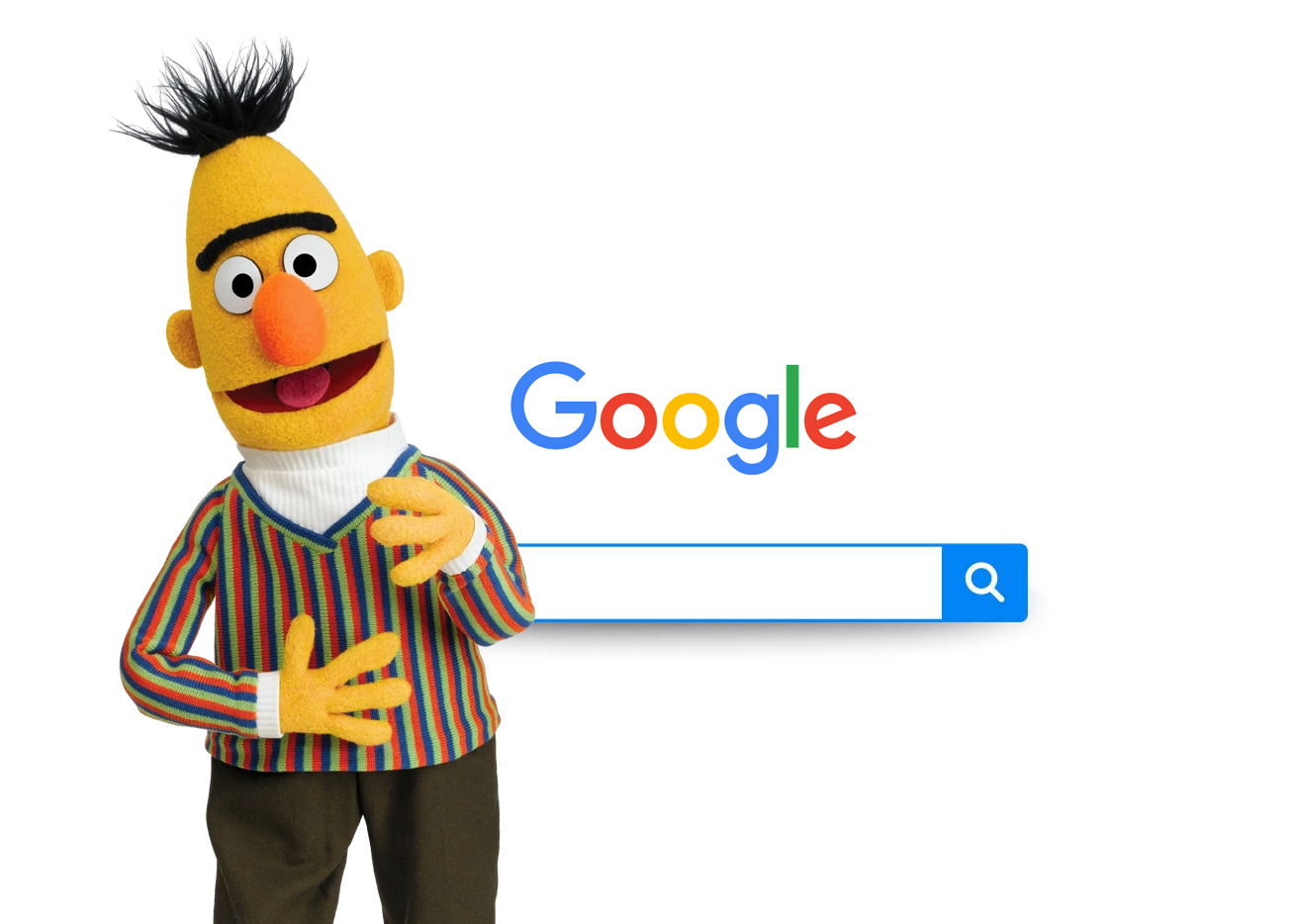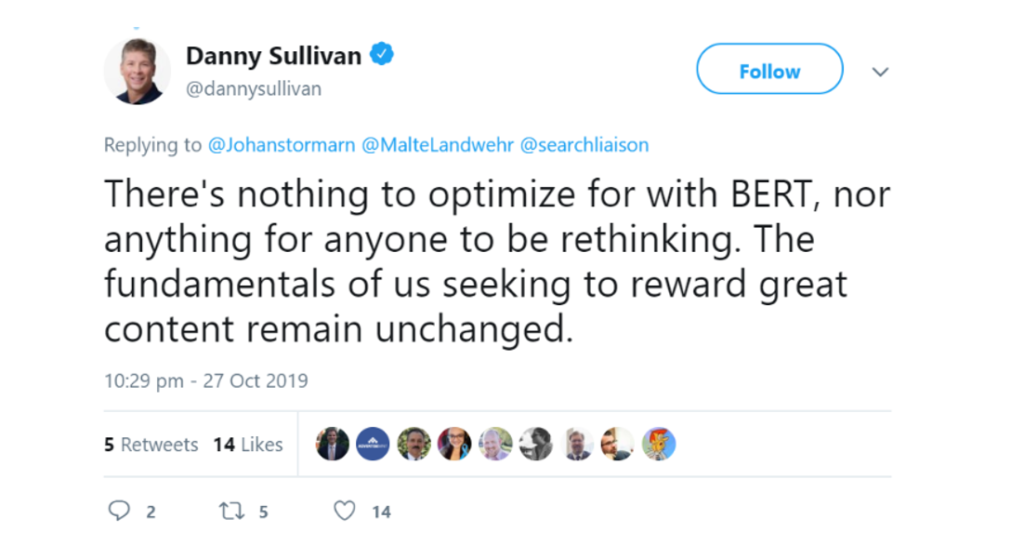Why You Don’t Need to Worry About BERT – Google’s Latest Algorithm Update

Another Google algorithm update we hear you say? Meet BERT (Bidirectional Encoder Representations from Transformers). BERT is helping Google understand the variations and subtleties of the human language that computers can’t quite grasp. With it set to impact one in ten search queries, this is one of the biggest improvements to Google’s algorithm in the past five years. In a never-ending quest to improve search results, the Google BERT update will enhance interpretation of complex long-tail search queries to show users more relevant answers. But how could BERT impact your SEO and content marketing? Read on to find out.
What is BERT?
Rolled out in late October for English language queries, BERT is set to expand across other languages to make search better for people all over the world. This time, Google didn’t look at the way data is indexed or ranked. Instead, through AI machine learning, they have improved their ability to pick apart the context of long-tail search queries to provide relevant results. Pre-BERT, Google only read sentences on a word-by-word basis. Now, Google can read a full sentence while also considering the individual words that make up the sentence, understanding how those words relate to one another. In short, it helps computers understand language on a more human level. According to Google, approximately 15 percent of all search queries are new, which means they are being searched for the first time. More and more people turn to Google with full, complex questions phrased in a ‘human’ way, expecting relevant answers, fast. BERT makes this possible. Extremely powerful, it can even take learnings from one language and apply them to others.
How does BERT impact SEO and content?
Most SEO-ers, content creators, site owners and tracking tools are yet to notice big changes. You may wonder why that is when Google itself said this new algorithm update impacts one in ten queries?
There is no simple answer on how you should react to BERT, but we are yet to notice significant changes. This is because most tools and SEO look at shorter search terms (as these drive the greatest search volume) rather than the longer conversational queries that BERT is designed for. As a result, you can’t really optimise content for BERT. This was confirmed by Google’s own Danny Sullivan on Twitter:

Instead, continue following Google’s best practice, focusing your efforts on writing quality content and building your website for people, not for algorithms. A worthwhile activity would be to invest time and resource into really getting to know your target audience. Consider factors such as how they search on Google, how they phrase their questions and create content that provides answers to these questions in a clear and natural way.
No matter what your users are searching for, they will always do it in a way that feels natural to them. Google shared that understanding language continues to be an ongoing challenge which motivates them to continue improving their search capabilities. Although it may have had small repercussions, BERT is sure to make a big impact to users with improvements across Google’s search results. What do you think about the BERT algorithm change? Let us know your thoughts.